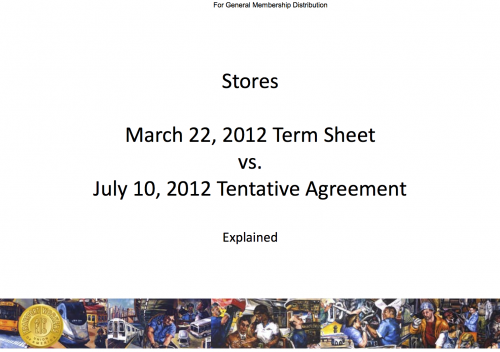 How we got here
How we got here
American Airlines entered in to bankruptcy on November 29, 2011
- Each major employee group union and non-union were required to make cost cuts that would equate to $1.25 billion annually.
- The five major groups were each targeted to be responsible for 20% of the $1.25 billion. Stores was responsible for $18.1 million. Because of the recent APA T/A, the Stores ‘ask’ has been reduced 15%. This, along with changes in profit-sharing plan has reduced the Stores ‘ask’ to $13.59 million.
- TWU Stores was hit especially hard with not only freezing the pensions and terminating the retiree medical plans but also an increase in aircraft maintenance outsourcing in M&R from ~10% of total maintenance spend to 35% of total maintenance spend.
Under the very restrictive conditions of bankruptcy, the TWU has worked diligently to come up with an alternative to the 3/22 Term Sheet. The July 10, 2012 Tentative Agreement captures improvements from the company’s last offer such as enhanced 401k, lower insurance premiums, 10.5% in wage increases, a .45 cent MLS skill premium effective DOS, an automatic wage adjustment to industry comparators average after 36 months, maintained 6 weeks of vacation and a twenty four month early opener.
Before you vote, information to consider
We are not in the collective bargaining process
• During the normal collective bargaining process, the contract remains status quo. In the 1113 process, the contract can be rejected by the Bankruptcy Judge if he finds that statutory requirements have been met (as has been found in nearly all cases).
What if the TA is rejected and the Court denies the motion to reject the CBA?
• Even though the TWU presented its best case, none of the experts believe that any union will prevail in preventing rejection of the CBAs. But even in the extremely unlikely event that the Judge denies the motion to reject the CBA, the picture will not be all rosy at the end of the exclusivity period the creditors would be free to propose their own plans of reorganization which could include merger or break-up.

